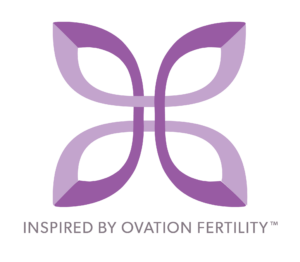Learn how we support candidates for IVF
Many patients at our Tennessee fertility clinic are curious about whether they’re candidates for IVF, or in vitro fertilization. IVF has become one of the most-popular fertility treatments, as it’s a highly effective tool to overcome many causes of infertility. To determine whether IVF is a good fit for a patient, our doctors review their medical history and order a series of helpful tests.
All about the candidates for IVF
After identifying the cause of a patient’s fertility struggles, the doctors at our Tennessee fertility clinic often recommend IVF to help overcome a range of issues.
Multiple miscarriages or unsuccessful fertility treatments. Many patients considering IVF have had numerous miscarriages and have tried a variety of other fertility treatments.
Diminished ovarian reserve. If a woman doesn’t have enough healthy eggs, IVF is often one of her best options. In some cases, our doctors may recommend IVF with donor eggs.
Ovulation challenges. Our doctors often find that women experiencing polycystic ovary syndrome (PCOS) or other conditions that affect ovulation are candidates for IVF, as it involves effective ovulation medications.
Damaged or blocked fallopian tubes. If a woman has pelvic inflammatory disease or scar tissue in the abdomen or the pelvis from surgery, she is likely a good candidate for IVF.
Endometriosis. This condition occurs when the tissue that typically lines the inside of the uterus grows outside of it. It can result in fallopian tube issues or problems with the uterine lining. This can lead to the need for fertility treatments like IVF.
Male infertility. Male patients with sperm abnormalities often find success with IVF with intracytoplasmic sperm injection (ICSI). This fertility treatment consists of an embryologist injecting the egg with a single healthy sperm.
If the doctors at our clinic find that one of these issues is preventing a patient from becoming pregnant, they’ll often recommend that they move forward with IVF.
What can you expect during an IVF cycle?
The first step involves the intended mother taking ovulation induction medications that cause multiple eggs to mature. Our fertility specialists regularly monitor her at our Tennessee fertility clinic during this time with ultrasounds and blood tests. When enough eggs have matured, a doctor retrieves them during a simple outpatient procedure.
An embryologist then fertilizes the eggs with sperm from the woman’s partner or a donor. Next, a doctor transfers one of the resulting embryos to the woman’s uterus. She’ll take a pregnancy test about 10 to 14 days later.
Our skilled team focuses on helping patients find the right infertility diagnosis, then creating a treatment plan that gives them the best chance of taking home a healthy baby.
Contact us for more information about the candidates for IVF.






